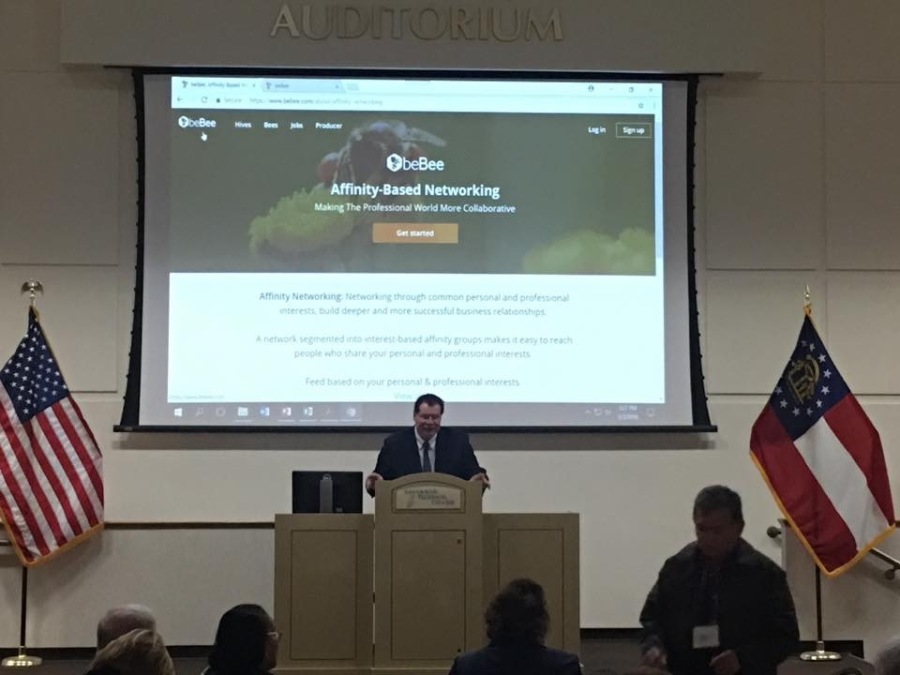ELEMENTS OF AN “AT LEAST EQUAL TO” DATA SYSTEM

ELEMENTS OF AN “AT LEAST EQUAL TO” DATA SYSTEM
To be “at least equal to” FSIS’s system, the State MPI data system needs to:
• Collect, analyze, and respond to establishment and State MPI program data • Monitor data streams to determine establishment performance, and • Respond, near real-time, to establishments that may pose a risk to public health
Also to be “at least equal to,” the State MPI data system needs to collect data from the following four activities:
1. Daily inspection verification activities at operating establishments 2. State MPI program HACCP verification testing 3. State MPI program in-depth food safety reviews 4. State MPI program administrative enforcement actions
Set out below are guidance and recommendations for State MPI programs on their data systems if they choose not to participate in PHIS. State MPI programs should monitor data collected from the four activities listed above. The data collected should be compared to different data sets (e.g., data of multiple circuits, data of multiple establishments, and data from previous months) and analyzed to determine whether the State MPI program is meeting program goals and objectives. State MPI programs should take appropriate actions, based on the analysis, when goals and objectives are not being met.
1. Daily inspection verification activities at operating establishments Data Collection
State MPI programs should collect establishment demographics (profiles). These profiles should include critical up-to-date information about the establishment’s size, produced, production volume, recall history, non-compliance history, and food defense plans. HACCP information for the establishment should be available in the profile and include summary information, processing categories, food safety hazards, critical control points, and prerequisite programs. A State MPI program should ensure IPP verify that establishments’ profile information is accurate and current at set intervals (e.g., at least every thirty days or whenever HACCP plans change). NOTE: The FSIS PHIS Inspection Task Catalog is provided as an attachment to this guidance. This Task Catalog is subject to change, but it sets out the PHIS tasks available based on establishment profile information.
Data Analysis
The State MPI program’s data system should contain public health-based decision criteria to identify establishments requiring more frequent inspection activities (e.g., increased directed food safety verification tasks).
The State MPI program’s data system should include a mechanism to react to inspection results. Examples of events or trends that would trigger the State MPI program to react to inspection results may include, but are not limited to:
• A large number of inspection activities not completed in an establishment • High rates of non-compliance in an establishment • A positive pathogen test result in an establishment (e.g., E. coli O157:H7 in raw ground beef or Lm in RTE products) • Infrequent establishment profile updates (e.g., HACCP plan changes failed to be identified or documented) • Tasks are not being performed at frequencies sufficient to ensure public health
The State MPI programs should ensure data quality and accuracy (i.e., a system identifying outdated establishment profile information, unperformed tasks).
2. State MPI program HACCP verification testing
Data Collection
The State MPI programs should maintain a system for tracking pathogen and residue testing results.
Data Analysis
The State MPI program’s verification testing system should contain public health-based decision criteria to identify establishments requiring more frequent inspection activities (e.g., increased directed sampling due to positive sampling results or concerns with establishment’s production process).
The system should include a mechanism to react to sampling results. Examples of events that would trigger the program to react to sampling results may include but are not limited to:
• A large number of sampling activities not completed in an establishment • A large number of laboratory discards • Positive sampling results in an establishment for adulterant pathogens (e.g., E. coli O157:H7 in raw ground beef, STEC in beef manufacturing trimmings, or Lm/Salmonella in RTE products)
• Violative residues • Identifying long term processes that may have exceeded their schedule (e.g., a Salmonella sample set that has not been finished)
3. State MPI program in-depth food safety reviews
State MPI programs should have procedures (e.g., Food Safety Assessments (FSA)) in place to verify that an establishment’s food safety systems are effective and producing wholesome unadulterated product.
Data Collection
A system should track routine and “for cause” in-depth food safety reviews.
Data Analysis
The State MPI program’s data system should include a mechanism to react to sampling and inspection results that could lead to a “for cause” in-depth food safety system review. Examples of events that may trigger the State MPI program to conduct a “for cause” indepth food safety system review may include, but are not limited to:
• Establishments not in compliance with specific laws and regulations • A positive for STECs in raw ground beef or raw ground beef components • A positive Lm or Salmonella in RTE products or a positive Lm food contact surface sample • A Class I recall or a food safety-related enforcement action (e.g., Notice of Intended Enforcement) that is not the result of an in-depth food safety system review • Establishments that fail Salmonella or Campylobacter performance standards • An establishment that is the supplier of product that tested positive for STECs in raw beef products • Human illness linked to product from a State-regulated establishment • An establishment that has a high level of public health-related Non-compliance Records (NR)
4. State MPI program administrative enforcement action
State MPI programs should have procedures in place to initiate enforcement actions, as needed, to ensure food safety compliance.
Data Collection
The State MPI programs should maintain a system to collect data and facts to support administrative enforcement actions and to track the results of actions taken (e.g., NRs, indepth food safety system reviews, intensified verification testing (IVT), suspensions, and recall information).
Data Analysis
The State MPI program’s data system should include a mechanism to react to the data collected that support administrative enforcement actions. Examples of events that may trigger the State MPI program to take administrative enforcement actions may include, but are not limited to:
• Positive STECs in raw ground beef or raw ground beef components
• Positive Lm, Salmonella, or E. coli O157:H7 in RTE products or a positive Lm food contact surface sample • An establishment which is the supplier of product that tested positive for STECs in raw beef products • Human illness linked to State-regulated product from an establishment (possible recall) • Establishments not in compliance with specific State laws and regulations
An explanation of the data system and supporting documents are to be included in the annual State Self-Assessment that is submitted to the Federal State Audit Branch by November 15.
IV. References and Attachments
FSIS Public Health Information System Reference Information:
FSIS Strategic Data Analysis Plan for Domestic Inspection http://www.fsis.usda.gov/wps/wcm/connect/84fa563e-0f5c-4df5-8e0499a04e9ce102/2010_Strategic_Data_Analysis_Plan.pdf?MOD=AJPERES Data-Driven Inspection for Processing and Slaughter Establishments http://www.fsis.usda.gov/wps/wcm/connect/fcaeabab-b89e-4bd4-b990c697f34a797f/2010_Public_Health_Decsion_Criteria_Report.pdf?MOD=AJPERES
Public Health Regulation List, Fiscal Year 2015 http://www.fsis.usda.gov/wps/portal/fsis/topics/data-collection-and-reports/fsis-data-analysisand-reporting/data-reporting/public-health-regulations
Articles from Bill Stankiewicz
View blog
During an influenza pandemic, transmission of the pandemic virus can be anticipated in the workplace ...

SAVANNAH, Ga., · 2019 –2020 · I am sharing from GPA press releases this month: · Port-related announ ...

Hello Bees: · Yes in the rapidly-evolving logistics market of 2019, cold is the new hot. That might ...
Related professionals
You may be interested in these jobs
-
Rehab RN- Full Time
Found in: Jooble US O C2 - 2 days ago
Northern Metropolitan Center Montebello, NY, United States Full timeJob Description Northern Metropolitan Residential Healthcare Facility is hiring a Registered Nurse (RN) in Monsey, NY. · As a Registered Nurse (RN), Provide advice & support to the Residents and their families · Monitoring Residents and administering medication and treatments ...
-
Concrete Operations Manager
Found in: Lensa US P 2 C2 - 3 weeks ago
Colas Sidney, United StatesSubsidiary: Barrett Industries · Barrett Paving Materials Inc. is one of the companies that operates within Barrett Industries Corporation, the Colas USA subsidiary that operates primarily in Maryland, Ohio, Pennsylvania, and New York. Barrett Paving is a leader in heavy civil co ...
-

Travel Nurse
Found in: Talent US A C2 - 2 days ago
GetMed Staffing Great Bend, United StatesGetMed Staffing is seeking an experienced Medical Surgical Registered Nurse for an exciting Travel Nursing job in Great Bend, KS. Shift: 3x12 hr nights Start Date: 05/19/2024 Duration: 13 weeks About GetMed Staffing: · GetMed is a medical staffing company that is here to help he ...


Comments
Bill Stankiewicz
6 years ago #3
Joyce 🐝 Bowen Brand Ambassador @ beBee
6 years ago #2
Bill Stankiewicz
6 years ago #1